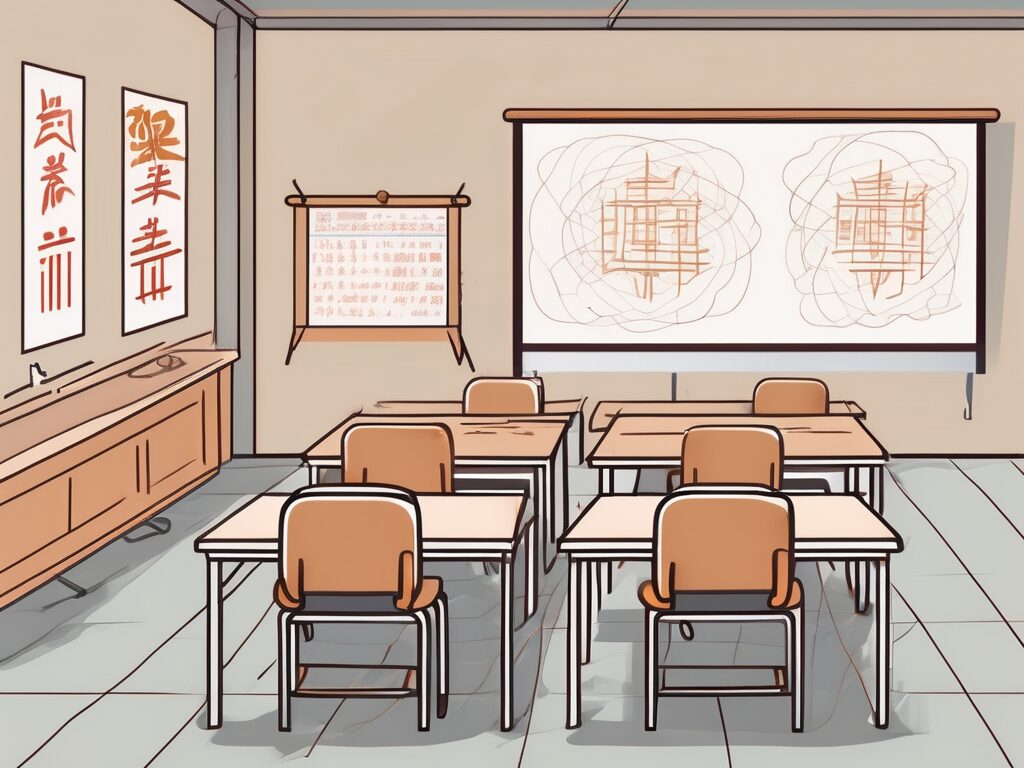In the ever-evolving global landscape, the importance of bilingual education cannot be overstated. This is especially true in Taiwan, a nation that has made significant strides in promoting bilingualism. However, as with any ambitious endeavour, there are challenges to overcome. This article delves into the intricacies of bilingual education in Taiwan, exploring the hurdles and potential solutions.
The Current State of Bilingual Education in Taiwan
Before we delve into the challenges, it’s crucial to understand the current state of bilingual education in Taiwan. The government has set an ambitious goal to transform Taiwan into a bilingual country by 2030. This initiative is driven by the desire to enhance international competitiveness and foster a global outlook among the populace.
Currently, English is taught as a second language in schools across Taiwan. However, the level of proficiency varies widely, largely due to disparities in resources and teaching methodologies. While some schools offer immersive English programmes, others struggle to provide even basic English instruction.
The Bilingual Education Policy
The Taiwanese government’s bilingual education policy is a key component of its broader National Development Plan. The policy aims to improve English proficiency across the board, from primary schools to universities. It also seeks to promote cultural exchange and mutual understanding, thereby fostering global citizens.
However, implementing this policy is no easy task. It requires a comprehensive overhaul of the existing education system, including curriculum development, teacher training, and resource allocation. These are significant challenges that need to be addressed to ensure the success of the policy.
Challenges in Implementing Bilingual Education
While the benefits of bilingual education are clear, the road to achieving it is fraught with obstacles. These challenges range from practical issues such as resource allocation to more complex problems like cultural resistance.
Let’s take a closer look at these challenges and explore potential solutions.
Resource Allocation
One of the biggest challenges in implementing bilingual education in Taiwan is the allocation of resources. Schools in urban areas, particularly in Taipei, often have access to better resources, including qualified English teachers and modern teaching aids. In contrast, schools in rural areas often lack these resources, leading to a disparity in English proficiency.
Addressing this issue requires a concerted effort to ensure equitable resource distribution. This could involve investing more in rural schools, providing teacher training programmes, and leveraging technology to bridge the gap.
Cultural Resistance
Another significant challenge is cultural resistance. Many Taiwanese parents and educators are concerned that an emphasis on English education may lead to a dilution of Taiwanese culture and identity. This is a valid concern that needs to be addressed sensitively.
One potential solution is to incorporate elements of Taiwanese culture into English lessons. This could involve using local stories and traditions as teaching materials, thereby promoting cultural exchange and understanding.
Teacher Training
Effective bilingual education requires teachers who are proficient in both languages and skilled in bilingual teaching methodologies. However, there is a shortage of such teachers in Taiwan, particularly in rural areas.
Addressing this challenge requires a multi-pronged approach. This could involve providing intensive training for existing teachers, recruiting foreign teachers, and encouraging Taiwanese teachers to gain international experience.
Looking Ahead: The Future of Bilingual Education in Taiwan
Despite the challenges, the future of bilingual education in Taiwan looks promising. The government’s commitment to the cause, coupled with the increasing recognition of the importance of bilingualism, bodes well for the success of the initiative.
However, it’s important to remember that change takes time. Transforming Taiwan into a bilingual nation by 2030 is an ambitious goal, and achieving it will require patience, perseverance, and a willingness to adapt and learn.
By addressing the challenges head-on and leveraging the opportunities that bilingual education presents, Taiwan can position itself as a leader in global education. And in doing so, it can foster a generation of global citizens, ready to navigate the complexities of the 21st century.
Empower Your Bilingual Teaching Career with IPGCE
As Taiwan strides towards a bilingual future, educators are at the forefront of this transformative journey. If you’re passionate about enhancing your qualifications and embracing the opportunities that bilingual education presents, IPGCE is your gateway to success. Our International Postgraduate Certificate in Education is tailored to help you overcome the barriers of stringent qualifications, propel your career progression, connect with a global professional community, and gain a profound understanding of international curricula. With flexible online study options, the iPGCE is designed for working teachers like you, aiming to balance professional development with existing commitments. Join the UK’s #1 Teacher Training Course today and be part of shaping a globally competent generation in Taiwan and beyond.

